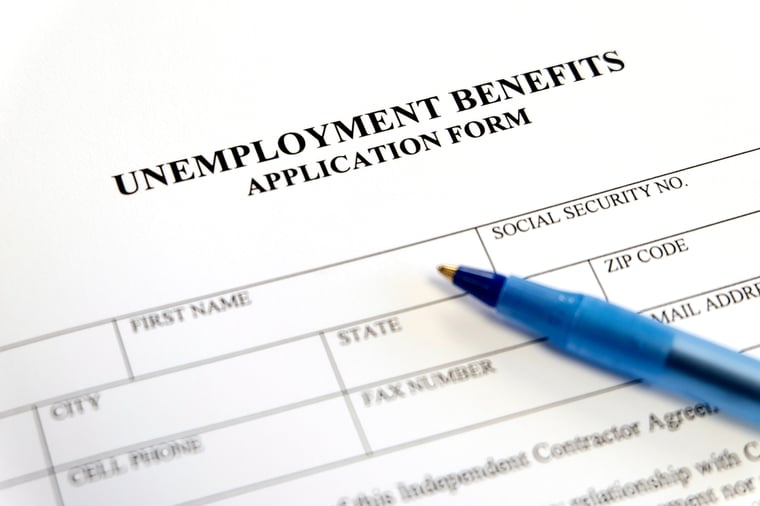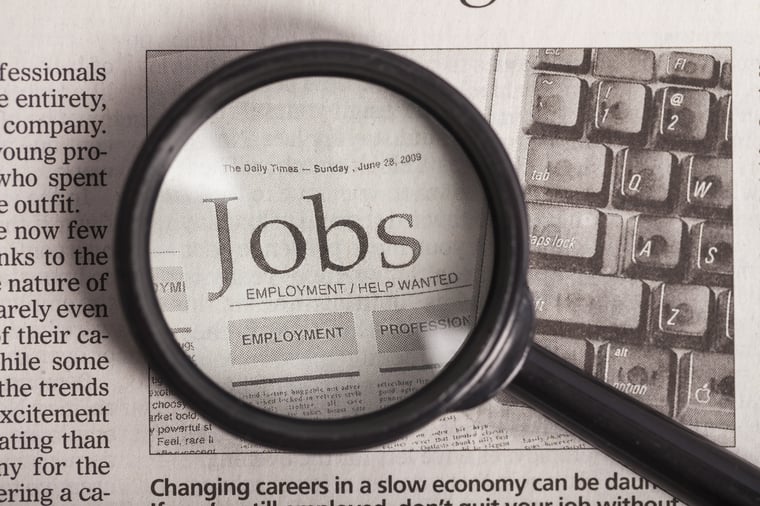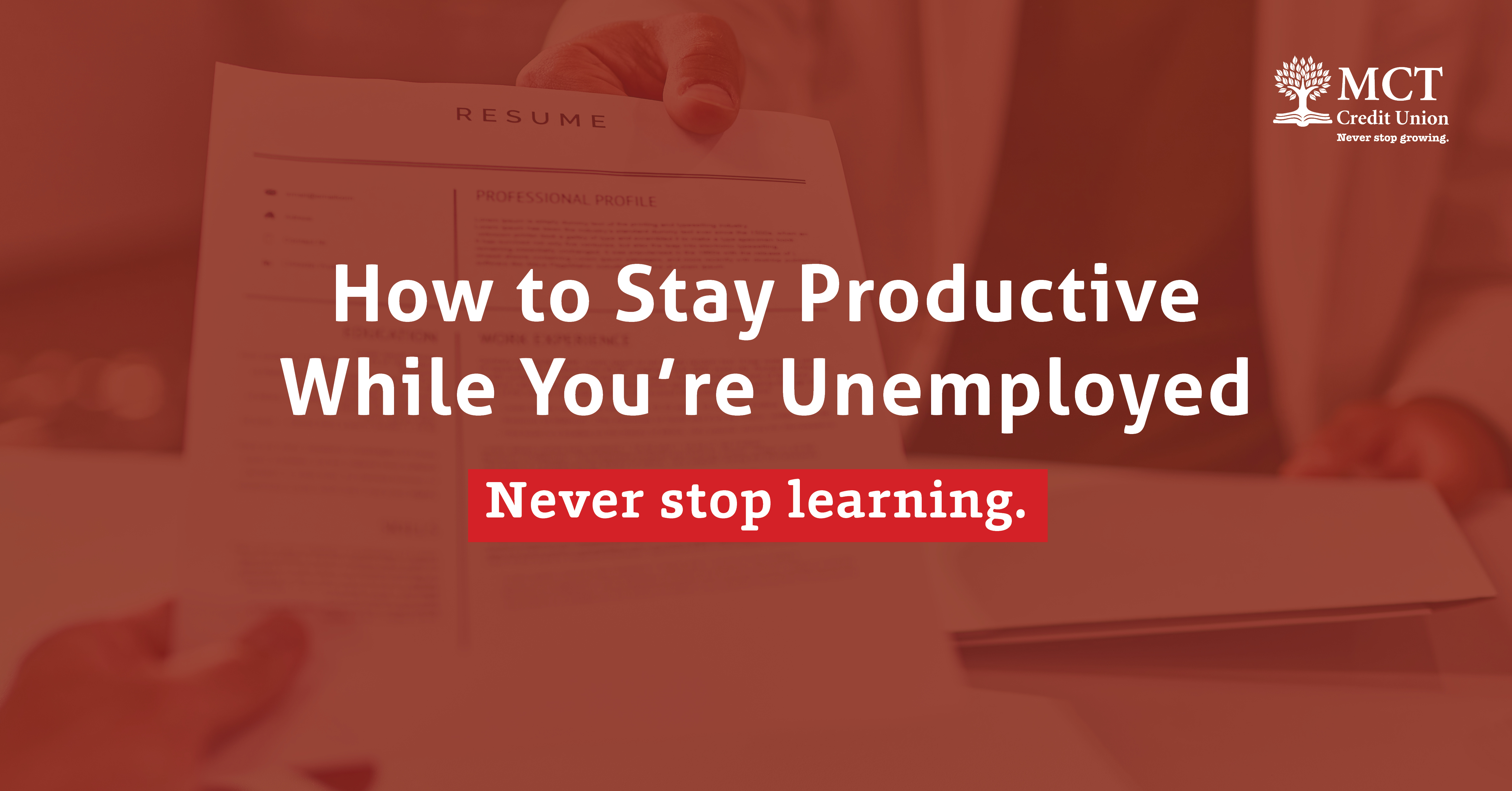Losing a job out of the blue can really throw you off balance, leaving you scratching your head about what to do next. Don't worry, we've got your back! There are a few crucial steps you can take to help you keep your finances afloat while you embark on the journey of finding your next dream job.
Emergency Funds
A healthy emergency fund is one of the most vital ways to protect yourself in periods of unemployment. In general, it’s recommended that you save up 3 months of essential living expenses. This can give you time to search for a new job without the stress of needing funds immediately.
Access our coach on building an emergency fund here!
If you don’t have an emergency fund already prepared, do what you can to make the money you have available last. Restructure your current spending and pull from savings as needed to create a cushion.
Collecting Unemployment
To see if you're eligible for unemployment insurance, simply apply at your state's local unemployment agency office or online. Rules vary from state to state, as does the income you're eligible for. If you’re approved, your benefit lasts until either you find a new job or the insurance expires. The term is usually 26 weeks, though it may be extended in times of large-scale unemployment. Anything earned through unemployment is considered taxable income.

Depending on your situation, you may be eligible for other government assistance programs that can help you and your dependents. To learn more, check out this article about government benefits.
Negotiating a Severance
Unless it explicitly states something about it in your employment contract, your employer isn't required to pay severance (termination pay), though some employers do. You may want to check with your human resources department about company policy if your supervisor doesn't raise the issue.
One complicating factor is that there's no uniform standard for what severance should be. Some companies offer one week of pay for each year of service. Others provide a flat four weeks of pay. Still, others make decisions based on other factors. Similarly, there's no requirement that all employees be treated equivalently, so you may want to be prepared to negotiate what you think is a fair settlement. In that regard, it will probably pay to do some research online. Many state unemployment agency websites offer severance calculators that can help you know where to start.
When you accept a severance package, many employers require that you sign a legal document releasing the employer from any claims you may have. It may be wise to review this document with a legal advisor before signing it to be sure that you fully understand all of the implications.
Rolling Over Your Retirement
If you participated in a retirement savings plan with your employer, you'll be asked how you want your plan assets handled when you no longer work for them. You own your contributions and any earnings on those contributions. Your employer's vesting schedule determines if you own the contributions your employer has made to your plan.
You may be able to leave the assets in the plan, at least for the time being, but you always have the right to move them into an IRA.
Staying Insured
It's essential to ensure that you have health insurance for yourself and your dependents. If you're married or in a long-term relationship and your spouse or partner has insurance, they may be able to cover you. Most employers offer family plans and some provide coverage for domestic partners. In all likelihood, this will be the least costly option.
If you were insured through your employer's plan, you may be eligible for the Consolidated Omnibus Budget Reconciliation Act (COBRA) for up to 18 months. Unfortunately, it's not cheap. You generally pay the full premium your employer pays, plus up to 2% in administrative fees. But at least you’ll stay covered, which is what matters most.
Early Retirement
Being offered an early retirement package may be less traumatic than being laid off, but it will still require some immediate decisions. If you're part of a pension plan, you may have to choose how your retirement income will be paid. If you don't need the money right away, you might want to ask if you can postpone income until you reach regular retirement age.
If you participated in a 401(k) or other retirement savings plan, you'll want to investigate whether it will be better to start taking income or roll over your account balance into an IRA. It's wise to discuss the alternatives with your employer's human resources officer and ask your financial advisor to recommend a retirement specialist.
You also need to check out health insurance coverage. Your employer may provide benefits until you're eligible for Medicare or you may be eligible for continuing coverage under COBRA under the same terms as people who have been laid off. The one thing you don't want to do is let coverage lapse.
The good news is that retiring doesn't have to be the end of your working life unless you want it to be. There are usually no restrictions against earning a salary while you are drawing from a pension unless you're a state employee who wants to work for another agency covered by the same retirement plan. A new job may also be the solution to the health insurance dilemma—and it may be the perfect opportunity to try a new career.
Making the Transition
It may be worthwhile to ask your employer for a few things before you finish packing up your desk, such as:
- The extension of your health-insurance benefits for as long as possible
- A prorated bonus for the months you've worked
- A faster vesting period for stock options so you can exercise them
- Cash for any unused vacation and sick days
As you figure out what to do next, it’s wise to make some adjustments to your current budget. It may be in your best interest to scale back in certain areas and focus on necessities until you have your next job lined up.
Finding Your Next Job

Of course, the options for finding your next job will vary widely depending on your field and desired role. If you’re feeling a little overwhelmed and not sure where to start, it may be worth considering a few of these options:
- Search online job boards
- Reach out to former coworkers, friends, or other connections about job opportunities
- Check the websites of companies in your field for job listings
- Contact your alumni network for connections or assistance
- Take online classes or do training to earn additional certifications
- Apply with a temp agency to get short-term jobs while you search
Being proactive can make a job loss much easier to manage. No matter your situation, you have options that can help catapult you to your next position.




